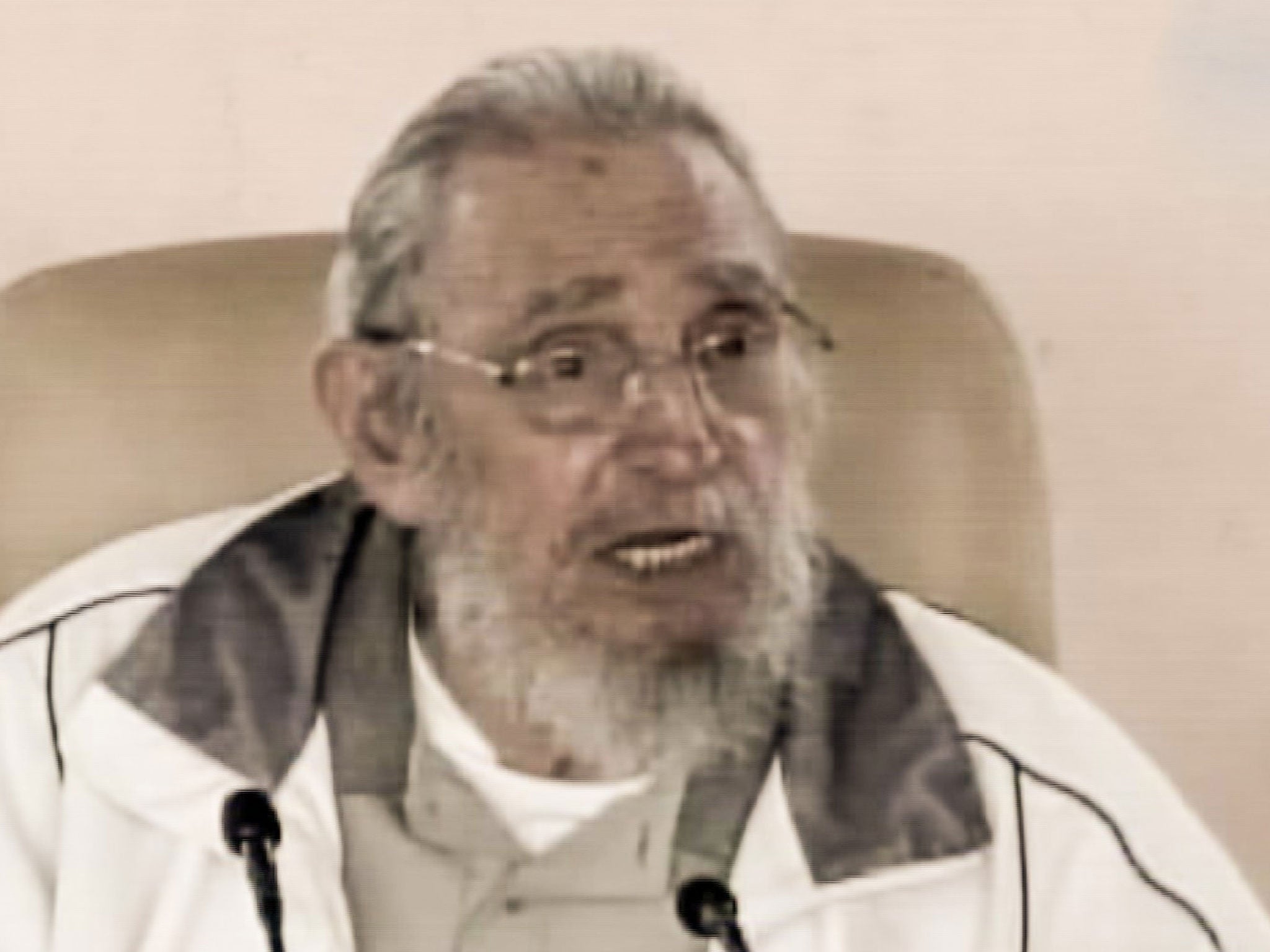Fidel Castro tells Cuba he could die soon: 'Everybody's turn comes'
'Soon I will be like all the rest,' he said

Your support helps us to tell the story
From reproductive rights to climate change to Big Tech, The Independent is on the ground when the story is developing. Whether it's investigating the financials of Elon Musk's pro-Trump PAC or producing our latest documentary, 'The A Word', which shines a light on the American women fighting for reproductive rights, we know how important it is to parse out the facts from the messaging.
At such a critical moment in US history, we need reporters on the ground. Your donation allows us to keep sending journalists to speak to both sides of the story.
The Independent is trusted by Americans across the entire political spectrum. And unlike many other quality news outlets, we choose not to lock Americans out of our reporting and analysis with paywalls. We believe quality journalism should be available to everyone, paid for by those who can afford it.
Your support makes all the difference.Fidel Castro has emerged from seclusion to muse about death and provide encouragement to his followers in a rare speech at the closing of a Communist Party congress in Havana.
"Soon I will be 90 years old," he said. "Soon I will be like all the rest. Everybody's turn comes," Castro told 1,300 party activists gathered at a Havana convention centre.
Cries of "Fidel, Fidel" once again rang out as the now frail former leader made his most extensive public appearance in years, speaking with a strong, if slightly hoarse, voice.
"Perhaps this will be one of the last times I speak in this room," said Castro, sporting a blue tracksuit jacket, glasses and wispy gray beard.
"The ideas of Cuban Communists will remain," he said, "as proof that on this planet, if you work hard and with dignity,
As with other stage-managed appearances in recent years he not shown standing, even as his brother and all the delegates rose to their feet in his honor. But he looked healthier than he did for a long time after a serious illness that led him to relinquish power 10 years ago.
The eventual death of Fidel was once expected to destabilise Cuba, provoking CIA plots to kill him. The smooth transfer to his brother Raul Castro largely ended such speculation.
The congress reviewed difficulties the party faces implementing market reforms, maintaining its leadership over an increasingly diverse and informed population and dampening expectations raised by detente with the United States and President Barack Obama's visit to the country last month.
The visit provoked Castro earlier to charge Obama was sweet-talking Cubans and had nothing to offer them, a view repeated by various delegates at the congress.
The congress proved a disappointment to many residents, especially the youth, re-electing an aging leadership and proposing little new to tackle the country's economic problems.
Fidel Castro took power in a 1959 revolution and led the country until 2006, when he fell ill. He now lives in relative seclusion but occasionally writes opinion pieces or appears meeting with visiting dignitaries.
The iconic figure's influence waned with his retirement and the introduction of market-style reforms by his brother, but Fidel Castro still has moral authority among many residents, especially older generations.
Join our commenting forum
Join thought-provoking conversations, follow other Independent readers and see their replies
Comments